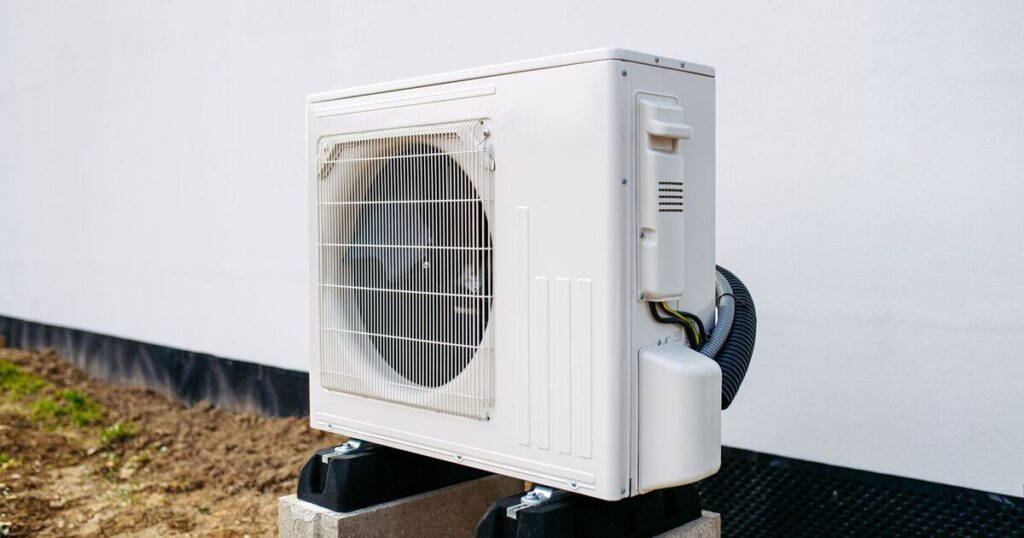
Households with eco-friendly heat pumps could receive £200 off their annual energy bills under plans reportedly backed by Labour’s Ed Miliband.
The proposal, reportedly being drawn up by the Department for Energy Security and Net Zero, would see families with heat pumps benefit from a 15% cut to their energy costs, with the money coming from a new £13.2 billion “warm homes” fund announced by Chancellor Rachel Reeves last month.
The aim is to incentivise the move away from gas boilers and towards low-carbon heating. However, the plans have already sparked warnings that they could unfairly benefit better-off homeowners.
Adam Berman, policy director at industry trade body Energy UK, said the high cost of electricity was “the single biggest inhibitor to the widespread take up of heat pumps”.
But, he told the Times: “A poorly designed scheme could risk being seen as a subsidy for middle class households.”
The average installation cost for an air-source heat pump is around £13,200 – more than four times the £3,000 it typically costs to fit a gas boiler.
Although ministers have already introduced a £7,500 upfront grant to help cover the cost, uptake has been slow, especially among those on lower incomes.
To address this, the Government is now planning to offer a flat-rate £200 discount to all households that have installed the technology, including the 300,000 who already have.
However, critics have pointed out that the cost of electricity is still around four times higher than gas, meaning heat pumps can be more expensive to run – despite being more efficient.
Some users have also complained about excessive noise from the units, which operate by extracting heat from the air outside and transferring it indoors.
A government analysis has found that without financial support, four in five so-called “fuel poor” households – those on low incomes with high bills and poor insulation – would actually face higher energy costs if they switched to a heat pump.
The £200-a-year subsidy is designed to close that gap and help level the playing field.
Ministers are planning for the discount to be paid for via a new levy on gas bills, which will then be refunded using government funds – at an initial cost to taxpayers of between £80 million and £100 million in the first year. That figure is expected to rise as more homes switch away from gas.
A public consultation on the proposals is set for October, with a parliamentary bill required to pass the changes into law.
Plans are also being developed to offer full funding for heat pumps and other upgrades – such as solar panels and home batteries – for households in the bottom 30 per cent of income earners under a “warm homes obligation” due to launch in 2027.
For better-off families, the government is looking at private finance options, including low-interest loans and subscription-style packages to spread the cost of switching.
Officials are also discussing a formal “consumer guarantee” that, by 2035, installing and running a heat pump will be cheaper than sticking with gas.
Allies of Mr Miliband say the support will not only bring down long-term energy bills but also tackle climate change, with home heating currently accounting for 14 per cent of UK carbon emissions.
The UK’s independent climate change committee has called for half of all homes to be fitted with heat pumps by 2040 to meet net zero targets. At present, fewer than 1% have them installed.
The Department for Energy Security and Net Zero said: “We do not recognise this speculation. As long as Britain remains exposed to the rollercoaster of global fossil fuel markets, we will be vulnerable to energy price spikes beyond our control. That’s why our clean energy mission is the best route to protect consumers and bring down bills for good.”
Meanwhile, Reform UK has announced it would axe clean energy subsidy deals with major renewable energy firms, such as Octopus Energy and SSE Renewables, if it came to power.
The party’s deputy leader, Richard Tice, told suppliers there was “no public mandate for the real-world consequences” of the net zero agenda.
 Latest World Breaking News Online News Portal
Latest World Breaking News Online News Portal






